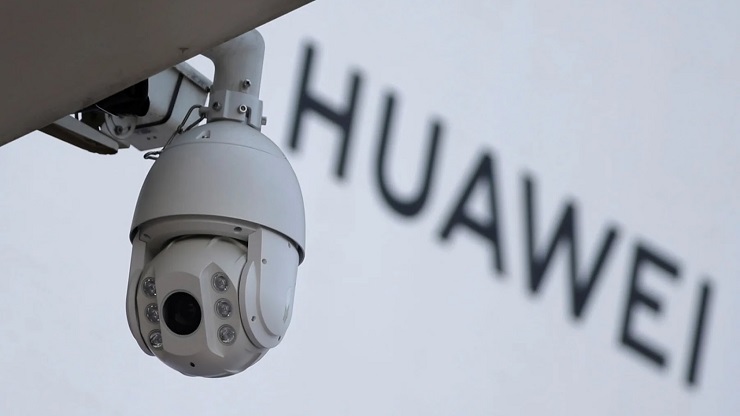The Western media has been reporting on a US-based software maker, Business Efficiency Solutions (BES), and its allegations that Huawei not only “stole” its technology, but also built in “back doors” into a law-enforcement project built in Pakistan.
It’s a three-for-one allegation, cementing further an ongoing and so far evidence-free narrative pushed by the US government that Chinese telecom giant Huawei is (1) a threat to global security, (2) reinforcing the notion that Huawei (and other Chinese companies) thrive by “stealing” technology from the West and (3) an attack on Chinese-Pakistani relations.
The Register in its article, “Huawei stole our tech and created a ‘backdoor’ to spy on Pakistan, claims IT biz,” would claim:
A California-based IT consultancy has sued Huawei and its subsidiary in Pakistan alleging the Chinese manufacturer stole its trade secrets and failed to honor a contract to develop technology for Pakistani authorities.
And that:
The legal filing claims, among other things, that Huawei has used BES’s Data Exchange System “to create a backdoor and obtain data important to Pakistan’s national security and to spy on Pakistani citizens.”
What is interesting is that beyond the allegations, no evidence is produced. The Register’s article even cites other indictments regarding Huawei to bolster the narrative, but indictments are merely more accusations.
At one point, The Register admits (emphasis added):
Last year, during the Trump administration, US authorities claimed that Huawei can covertly access its telecom equipment. But evidence to that effect, if it exists, has not been made public.
The Wall Street Journal also covered the story in their article, “Huawei Accused in Suit of Installing Data ‘Back Door’ in Pakistan Project.” In it, they admit that Pakistan’s investigation into the matter has turned up no evidence to support BES’ allegations.
For the US government, whose credibility suffers because of serial deceptions including those misleading the American public into multiple disastrous wars, if it had credible evidence regarding Huawei, it likely would have disclosed it. Not disclosing it leaves the world to assume that just as the US lied about Iraq possessing “weapons of mass destruction” leading to the US invasion of Iraq in 2003, the US government is also lying about Huawei to pressure yet another targeted nation, this time China.
Besides reinforcing Western narratives undermining Huawei, the allegations also seem to be targeting Chinese-Pakistani relations.
China and Pakistan are close partners economically and militarily. Pakistan is also a key partner in China’s Belt and Road Initiative (BRI) which includes the China Pakistan Economic Corridor (CPEC), a series of roads, pipelines and other infrastructure projects stretching from Pakistan’s border with China in the north to Gwadar Port in Pakistan’s southwest region of Baluchistan.
The US has overtly attacked this project, quite literally, through the use of armed separatists it backs in Baluchistan.
Baluchistan, the site of Gwadar Port, is the terminal of the entire CPEC corridor. Beyond backing armed militants to physically attack joint projects and those working on them, the US sought to carve Baluchistan off from Pakistan’s territory altogether, entirely and permanently blocking this key leg of the BRI.
Op-eds in publications like The New Interest titled “Free Baluchistan,” US House of Representative hearings openly calling for backing an “independent’ Baluchistan, and US House of Representative resolutions like one in 2012 titled, “Expressing the sense of Congress that the people of Baluchistan, currently divided between Pakistan, Iran, and Afghanistan, have the right to self-determination and to their own sovereign country,” make it clear just how far the US is willing to go to sabotage Chinese relations with its allies, foil joint projects and stop the BRI.
Promoting baseless accusations is such a small contribution to an already very wide and malign campaign against China, its businesses and its allies.
The Register also notes a BBC article titled, “Huawei wi-fi modules were pulled from Pakistan CCTV system,” in which the inclusion of WiFi cards in CCTV systems is depicted as a possible attempt by China to monitor Pakistani citizens, though no explanation is given as to why China would want this capability.
The BBC even admits that the inclusion of the WiFi cards was included in Huawei’s tender for the contract with a much more plausible explanation given as to why they were included, for remote diagnostics for the operators of the system.
The BBC also admits that Pakistani officials found that the cards were never used, and promptly removed by Huawei upon Pakistan’s request, not because they were being abused, but because they could potentially be abused, and not specifically by Huawei, but in general.
Pakistani officials and a Chinese company transparently and promptly addressing security concerns is portrayed by the BBC as something potentially more sinister. The Register then lumps what was already a stretch in narrative by the BBC to bolster BES’ otherwise baseless claims made against Huawei.
It is the creation of a propaganda storm efficiently fulfilling multiple Western propaganda objectives against China while making up for a lack of actual evidence by substituting in a large number of accusations, hoping readers do not understand the difference and never inquire too deeply into any of them and discover just how tenuous the narrative is.
Stories regarding Huawei’s business in Pakistan, when read carefully, demonstrate Pakistani officials being happy with Huawei’s service and another example of Chinese-Pakistani ties benefiting both nations. These stories thus require a third party like US-based BES to inject itself into the middle of this relationship to taint it, while further attacking Huawei’s credibility. And the Western media is more than happy to go along.
Joseph Thomas is chief editor of Thailand-based geopolitical journal, The New Atlas and contributor to the online magazine “New Eastern Outlook”.
 RSS Feed
RSS Feed















 August 25th, 2021
August 25th, 2021  Awake Goy
Awake Goy 
 Posted in
Posted in  Tags:
Tags: 













